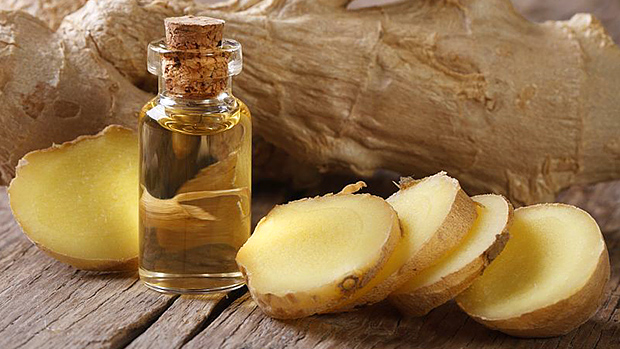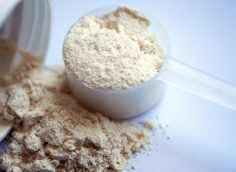The use of NSAIDs, like aspirin and ibuprofen, by athletes and lifters is incredibly high. Most athletes are pretty beat up. But long term use of NSAIDs isn't exactly healthy. Luckily, ginger works in a similar manner to reduce inflammation, but without the severe side effects.
The Study
A systematic review analyzed dosing, timing, and outcomes of ginger supplementation. The two outcomes looked at were effectiveness as an analgesic (pain reducer) and use as an ergogenic aid (performance enhancer).
There were seven studies included in the review for effectiveness as an analgesic. Four of them found significant reductions in pain in the ginger group compared to a placebo group, and a fifth one had a reduction in pain although not significant. The other two studies showed no differences in pain measurements between groups.
There were nine studies included in the analysis for use as an ergogenic aid. Two studies showed decreases in inflammatory markers in the ginger groups. One study showed a decrease in recovery time in bicep 1RM in the ginger group. Another study showed small to moderate effect sizes in range of motion and RPE (rate of perceived exertion) of the elbow between ginger and placebo groups. The rest of the studies didn't seem to show any difference.
What This Means
There's decent evidence for the use of ginger in pain alleviation and to possibly decrease recovery time via decreased inflammation. However, unlike ibuprofen or any other NSAID, the use of ginger takes time.
Dosages between 2 and 4 grams a day, ideally for at least 5 days, is when the effects start taking place. So you have to take it consistently to reap any benefits. A single dose doesn't seem to have any effect, at least in the dosing quantities analyzed.
Side Effects and Risks of Ginger
Ginger is not without a few possible side effects, the most common being mild heartburn and upset stomach. Upset stomach, as noted in the study, usually occurs at a dose of around 6 grams per day, which is higher than the recommended doses listed above.
Another side effect is a possible increase in bleeding time if you cut yourself because of the pathways ginger alter may affect clotting time. If you're taking anticoagulants you probably don't want to take ginger. This is a risk shared with NSAIDs.
The last big risk (or "unknown") with ginger is its long term effect on hypertrophy and muscular adaptation due to the decrease in inflammation, similar to NSAIDs. The results are only speculative. There aren't long term ginger studies analyzing muscular adaptations.
While there's some evidence for altered adaptation effects with long term NSAID use, ginger and NSAIDs work similarly for inflammation but vary greatly in how they affect other aspects of the body. Extrapolation really can't be made, and the so the answer is: possibly.
So Should I Use It?
While there are some side effects and unknowns to ginger use, it does seem to be effective in reducing pain and possibly decreasing recovery time. And for chronic NSAID users, the side effects pale in comparison.
Possible side effects/increased risks for NSAID use are hyponatremia, high blood pressure, nephropathy, bronchoconstriction, and stomach bleeding, just to name a few. Ginger may be the ticket for you to finally get rid of that pain, while simultaneously ditching the NSAIDs.
Reference
- Wilson, PB. Ginger (Zingiber officinale) as an analgesic and ergogenic aid in sport: a systemic review. J Strength Cond Res 29(10): 2980–2995, 2015


